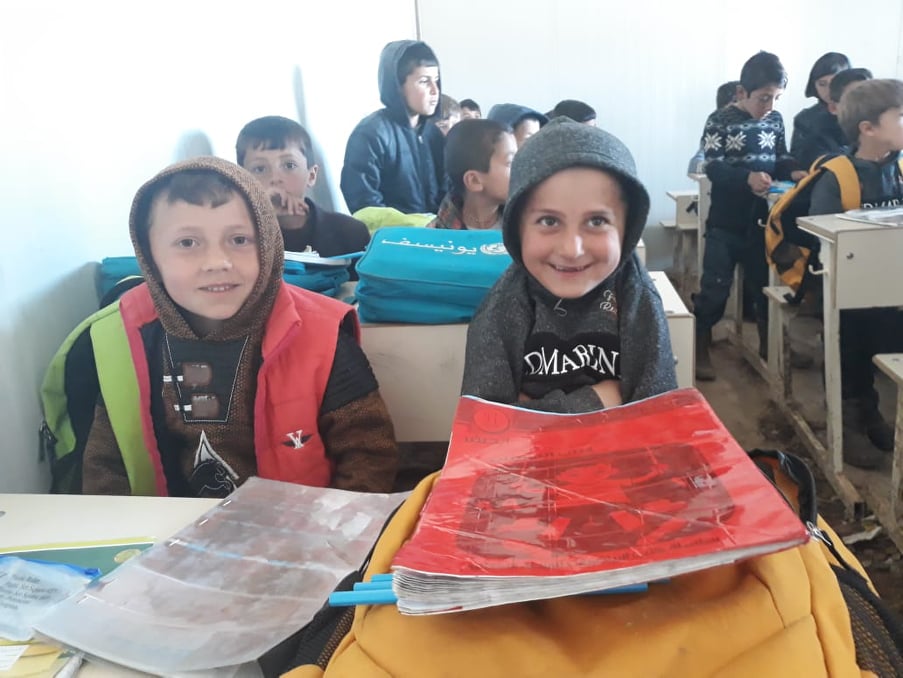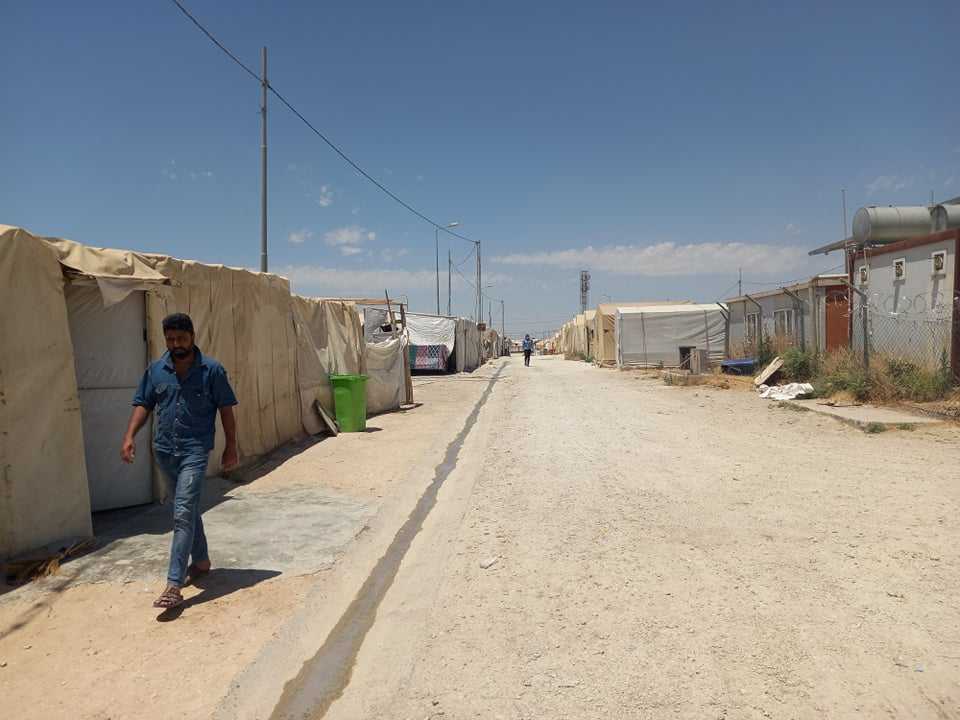What happened
Most of the world's Yazidis live in Germany - after Iraq. The figure of 250,000 Yazidis in Germany is now being bandied about here; I know of even higher numbers, as the Yazidis first came from Turkey in the 1980s.
The fate of the Yazidis under IS was a very prominent topic here. In January 2023, the German Bundestag recognised the crimes committed by IS against the Yazidis as genocide. In the spring of 2023, the federal government ruled out the deportation of Yazidis to Iraq. Since then, there has been an increased deportation of Iraqis, including Yazidis. And this is new – Previously, Yazidis were practically never deported, even if the residence status of newly arrived Yazidis deteriorated (see below).
By the end of October 2023, 164 people had been deported to Iraq (77 in total in 2022). It is not clear how many Yazidis are among those deported - and this has not yet been recorded. One assumption is that it was not specifically against Yazidis, they simply wanted to "deport" - whoever (see below for the reasons).
Now there are protests and attempts to draw attention to the fate of the Yazidis. One interesting point is: what does it actually mean when you declare a persecution somewhere to be a "genocide" (obviously, no one in the parliament has thought about this before).
According to an estimate by Pro Asyl (a lobby organisation for asylum), 5,000 to 10,000 are at risk of deportation to Iraq now.

Obviously Iraq and Germany agreed a memorandum of understanding on deportations months ago. This was supposed to remain secret, at least in Germany, but has just been leaked here. According to the German Federal Ministry of the Interior, there are around 26,000 Iraqis who are required to leave the country - by far the most common nationality among those required to leave. However, as said above, only 77 people were deported directly to Iraq in the whole of 2022. And now you need to know: In its coalition agreement almost two years ago, the German government announced a "repatriation offensive".
Background
Legislation on asylum and refugees has been politically controversial in Germany for decades and has basically been tightened for 40 years. However, the number of people seeking asylum in Germany has also risen dramatically during this period. Germany has de facto become a country of immigration, which it was not for a long time in the self-image of many Germans.
In 2022, around 68,000 Syrians, 55,000 Afghans and 49,000 Turks arrived. However, the record number was set by 1.1 million Ukrainians. In total, 1.4 million more people came than left. There are serious problems with too little housing, which has also become very expensive, and massive problems at schools. And there is a very heated discussion as to why people who should actually leave the country often cannot be deported. There are discussions like this all over Europe and the "refugee problem" is one of the most important domestic political issues here.
The increasing deportations to Iraq must also be seen against this background - Iraq is one of the few countries from which many people come to Germany to which deportations are possible (and can be maybe expanded through the new agreement). For other main refugee countries such as Syria or Afghanistan, but also for many countries in Africa, there is practically no possibility for that at all, because of civil wars or because governments simply do not take people back.
Right now there is a kind of competition between nearly all German parties to see who can show that they are tough on this issue and "doing something". It's a bit hysterical - the direct background here is the success of the right-wing populist parties. And next year there will be a number of important regional elections in Germany. They are in the East – the former GDR – and here people for some reasons are quite fed up with the “system”. And the “foreigner “problem is especially prominent here (even if most of them are in the West). A lot of people are really afraid of this elections.
The legal situation
It can be said that the entire area of legislation in the field of migration, flight, asylum legislation and residence law in Germany is quite complicated and in many aspects is not understood by most Germans.
This is not least due to the fact that responsibilities are divided between the federal government (the national government) and the 16 federal states. So for refugees, it can suddenly be quite decisive in which federal state they live.

There is also not a single law for refugees, a distinction is made between
- asylum (the highest, very rare form of protection, direct persecution by another state only, entry not via a safe third country - i.e. not from another EU country. (Basically, you have to come by plane or ship, it is a bit of a joke)
- refugee protection (according to the Geneva Refugee Convention, one can also be threatened by non-state actors)
- subsidiary protection (most of the Syrians who came in 2015 were granted this, because there were so many of them, it was said that you don't look at every single specific case, but rather they are people who come from a civil war).
And then there are a number of special cases that determine that people are allowed to stay or come (such as family reunification) or, for example, people are temporarily not deported to certain countries because of the situation there - for example to Afghanistan, since the Taliban have been ruling there again. People are also not allowed to be deported to war zones. So people can stay in de facto Germany ("toleration"), but only have relative security.
Then there are courts that review such decisions, and in cases of doubt, arguments are based on specific regions (for example, it is argued where it is safe for whom in Iraq).
At the beginning in 2015. The Iraqi Yazidis more or less automatically received a very good status, many even received asylum (this had also been relaxed a bit), they were considered “group persecuted” - this term still reflects the original origins of German asylum legislation from the debate about the Nazi era. Just as Jews - no matter who they were individually - were persecuted as Jews, in group persecution every member of the corresponding group should theoretically also find protection. In 2017, the first German judge in Germany ruled that Yazidis were no longer subject to “group persecution” in Iraq – ISIS had been defeated. And now the status of new arrivals was getting worse and worse - and since more and more Iraqis are now being deported, the first Yazidis were among them.
Possible outcomes
The government of the federal state of North Rhine-Westphalia (a very large western federal state) has just imposed a "deportation ban" on Yazidi women and children for three months - male Yazidis can still be sent back. This is a success due to various protests. And it is a start because this government is now saying that it would actually be the task of the Federal Minister of the Interior to regulate this uniformly together with the other federal states. The Federal Minister of the Interior, on the other hand, is under pressure because she actually comes from the left and is more in favor of granting asylum generously, but her party, the (SPD), is losing many voters and she has to show "strength".
The chances are good that there might be a special arrangement for Yazidis (together with the federal states). Perhaps with a cut-off date (Yazidis who came before can stay, but if any come in the future, they have to go through the normal procedure.) But nothing is clear yet. The interesting point is because of the recognized "genocide" of the Yezidis and their history, the whole thing is also a very moral discussion.





